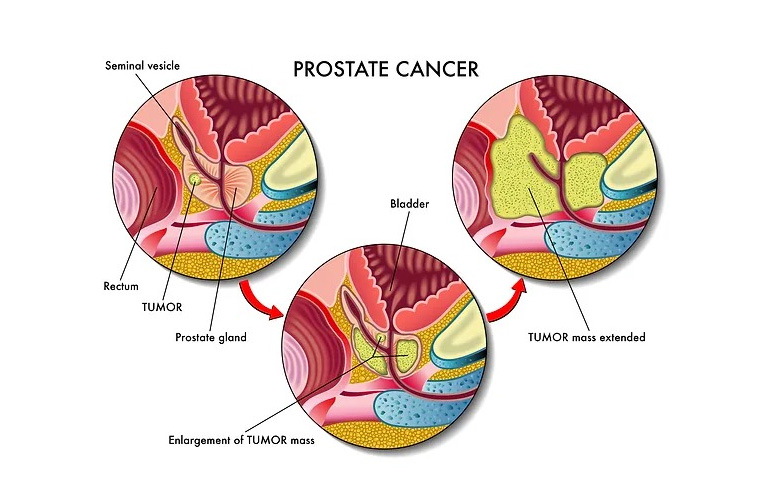Prostate Cancer
The prostate is a small gland present in the lower abdomen of men, under the bladder. It surrounds the urethra. The gland is regulated by testosterone and it is here when semen is produced. Prostate Cancer is cancer in the prostate, and it happens when the cells in the region become abnormal and begin to multiply at a very fast rate. In simple words, when a malignant tumor forms in the prostate, it is called prostate cancer.
It is a very serious disease that affects middle-aged men or older (typically above 65 years of age). While prostate cancer does not develop and spread rapidly, it can travel to the lymph nodes and seminal vesicles upon spreading. This is one of the major reasons why it takes a long time for the growth of prostate cancer to become detectable. To remain on the safer side, it is advised to regularly consult a Prostate Cancer Specialist in Delhi.
Prostate Cancer care involves the early diagnosis, treatment of early stage diseases. This involves adequate counseling and guidance to the patients. The support required to the patients involves staging, guiding optimum treatment outline that is surgery or radiotherapy or just follow up or surveillance.
Symptoms of Prostate Cancer
Symptoms are often similar to those of benign prostatic hyperplasia (BPH). Men observing the following signs and/or symptoms should see their physician for a thorough examination:
- Bloating
- Pelvic or abdominal pain
- Difficulty eating or Feeling full quickly
- Loss of weight
- Blood in urine or semen
- Frequent urination, especially at night
- Inability to urinate
- Nagging pain or stiffness in the back, hips, upper thighs, or pelvis
- Painful ejaculation
Diagnosis of Prostate Cancer include:
- Since the above mentioned symptoms can potentially indicate the presence of other diseases or disorders, men who experience any of these symptoms should undergo a thorough check-up to determine the underlying cause of the symptoms.
- A blood test for a protein known as Prostate Specific Antigen (PSA)
- An ultrasound examination through the rectum is suggested, usually, after the doctor has examined the prostate through the rectum (Digital Rectal Examination - DRE)
Treatment
Prostate cancer treatment methods may vary case-by-case as per patient, some of the common types are:
- Radiation Therapy: Radiation therapy uses high-powered energy to kill cancer cells. Prostate cancer radiation therapy treatment can be delivered in ways. During external beam radiation therapy(ie Prostate cancer treatment without surgery), the patient lies on a table while a machine moves around the body directing high-powered energy beams to the cancer. The patient undergoes external beam radiation treatments five days a week for several weeks. External beam radiation uses x-rays or protons to deliver the radiation.
- Hormone Therapy: Hormone therapy is treatment to stop the body from producing the male hormone testosterone. This method of treatment in prostate cancer is known as testosterone suppression treatment. Prostate cancer cells rely on testosterone to help them grow. Cutting off the supply of hormones may cause cancer cells to die or to grow more slowly.
- Chemotherapy: Chemo in prostate cancer treatment uses drugs to kill rapidly growing cells, including cancer cells. Chemotherapy can be administered through a vein in your arm, in pill form or both.Chemotherapy may be a treatment option for men with prostate cancer especially when it has become metastatic (spread to distant areas of their bodies). Chemotherapy may also be an option for cancers that don't respond to hormone therapy. Multiple new chemotherapy drugs have recently been approved for treatment of progressive, metastatic prostate cancer.
- Immunotherapy: A form of immunotherapy has been developed to treat advanced and recurrent prostate cancer. This treatment takes some of the patient own immune cells, genetically engineers them to fight prostate cancer, and then injects the cells back into the patient body through a vein. Some men do respond to this therapy with some improvement in their cancer, but the treatment is very expensive and requires multiple visits.

